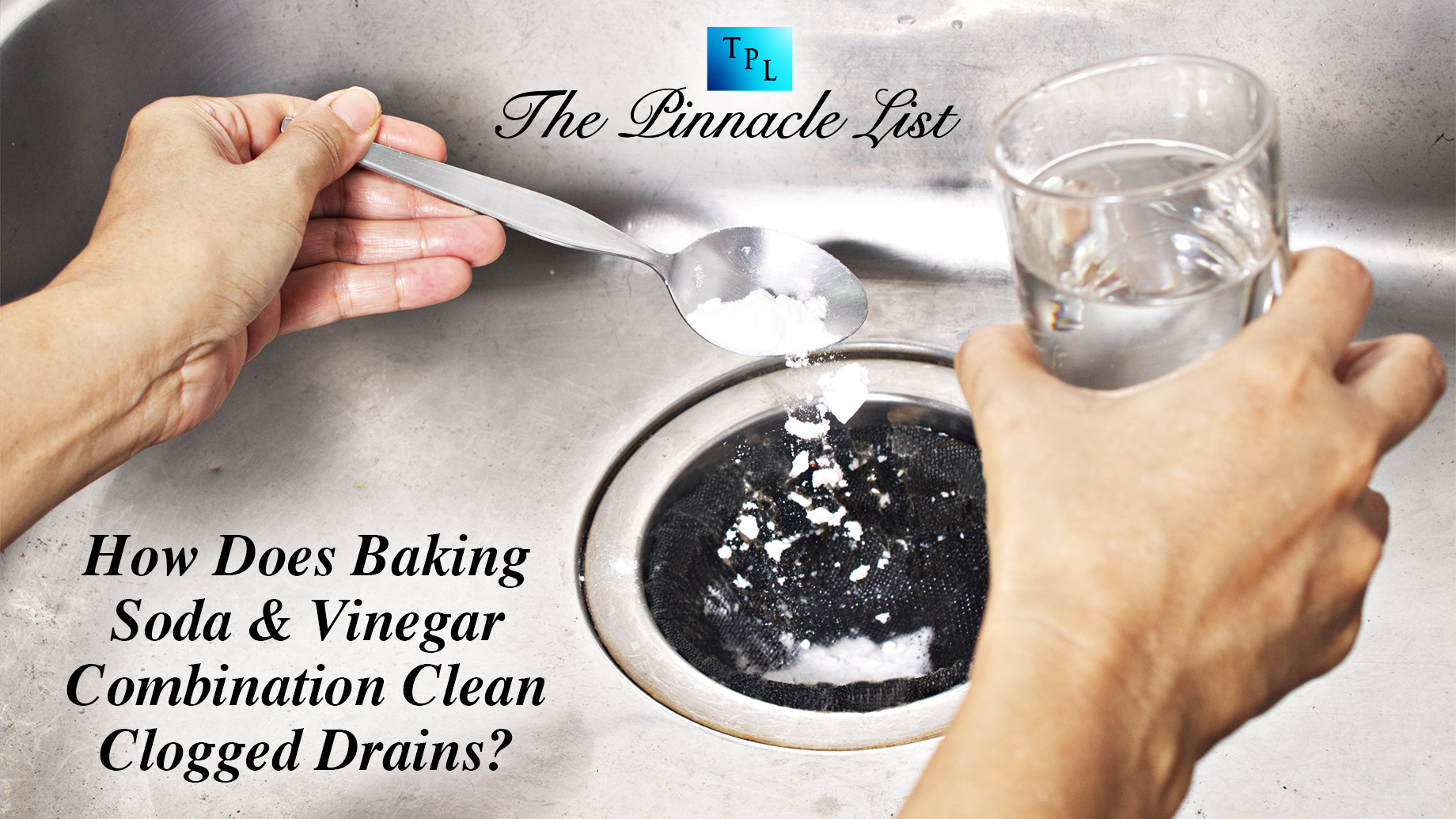
You know you have a clogged drain if your bathtub or sink starts to drain slowly, and you probably require expert attention to clear out your blocked drains in Geelong, Victoria, Australia. However, suppose you wish to manage the clogged drain all by yourself. In that case, there are some effective and easy ways in which you can use baking soda and vinegar combinations to get the water flowing again without requiring the assistance of a plumber. In this blog post, you will get to know how to use baking soda and vinegar to clear out your stubborn drain clog in the most implicit manner.
Why Baking Soda & Vinegar Combinations are the Best Choices for Drain Clearing?
The most crucial reason baking soda and vinegar combinations are the best choices for your drain cleaning needs is their natural and non-toxic nature that does not harm your pipes. To prepare this mix, you need to put equal parts of baking soda and vinegar in a bowl and blend the mixture well. You can then pour the mixture down the drain and allow it to sit for 10 minutes. After this, you can rinse it with hot water to clear the clog completely.
The process helps break up any stubborn clogs or buildup in your faucets that could be causing blockages. However, if the above method doesn’t clear the clog completely, and you feel your plumbing requires immediate attention from experts, you can contact an emergency 24/7 Plumber in Geelong to assist you in the process.
Preventing Garbage Disposal Clogs
There is some disparity among people regarding the types of food one can flush down the garbage disposal that may or may not create clogs. The following are such examples of food items one can avoid disposing of down the drain:
Avoid Starchy Foods
You can refrain from disposing of starchy food items like potatoes as they create a thick paste after being churned in the garbage disposal. Similarly, pasta and rice also produce a greasy coating on garbage disposal blades.
Avoid Grease or Cooking Oils
You can stay clear from grease and oil that solidify at a certain temperature causing disastrous effects on your garbage disposal, wastewater treatment, or pipes. Furthermore, fats are one of the worst greasy foods to avoid in garbage disposals to prevent complete pipe and sewer clogging.
Avoid Egg Shells
There is a common myth that egg shells sharpen their blades when put in garbage disposals. However, this is far from true, as the membranes inside the eggshell stick to the garbage disposal grinders, making them wary.
Avoid Coffee Grinds
Many observe the common practice of putting grounds of coffee in garbage disposers to eliminate the odour. In comparison, coffee grounds may not be as damaging to garbage disposals as to the drain. Such waste could accumulate in the drains and create stubborn clogs that are tough to clear.
Avoid Stringy Vegetables
The stringy and fibrous nature of corn husks, onion skins, celery, and artichokes may tangle up in garbage disposals, causing the motor to jam.
Process of Unclogging a Drain
You may require a professional plumber to unclog a drain, but for simpler clogs, baking soda and vinegar are quick fixes and show instant results. The mixture allows the complete dissolution of the clog and aids in passing it off through the pipes, allowing easy water flow.
- After pouring the baking soda and vinegar mixture into the pipes, you can pour hot water to warm up the pipes and for easy passage of the clog.
- If the clog still doesn’t pass, you can add 1/2 cup of baking soda into the drain.
- You can then pour 1 cup of vinegar and cover the drain with a plug. After 10 minutes, you will hear fizzing. The fizzing solution helps dissolve stubborn clogs and clear the blockage.
- You can rinse the drain with more hot water.
- For the best results, you can repeat the steps a few times to get the desired results.
Despite all measures, prevention is better than cure. Therefore, you can use a baking soda and vinegar mixture regularly to clear out the drain clogs and prevent the accumulation of debris altogether.
Other Effective Ways to Clear Drain Clogs
Clearing Drain with Boiling Water
You can use the simplest process of pouring boiling water down the faucets to clear out clogs from the drain. Using boiling water is helpful as it breaks up stubborn grease, and soap scum kills bacteria in your pipes and clears the blockages. For this process, you can boil 6-8 cups of water and slowly pour it down the drain. You can keep intervals of 1-2 cups per minute while pouring the water and then wait for an hour before applying cold water into the drain for 30 seconds to flush the clogs.
Clearing Drain with a Plunger
If you continue to face blocked toilets in Geelong, you can use a plunger on the drain to open and push away debris or blockages, preventing free water flow. For the process, you can start by filling the sink or tub with sufficient warm water to cover the plunger cup top, creating suction over the blocked area. You can push and pull the plunger into the toilet to clear the clog quickly and efficiently. After completing the process, you can run cold water to flush any training debris.
Conclusion
You do not have to spend excessively on plumbing repairs. You can follow the easy tips and tricks of clearing clogs with baking soda and vinegar and save time and money. However, if you persistently experience plumbing issues at home, speak to experts at Your Local Plumbing and get the best advice and assistance for all plumbing-related problems. They provide the most experienced plumbing experts in Geelong who understand all your plumbing needs and offer solutions that last a lifetime.